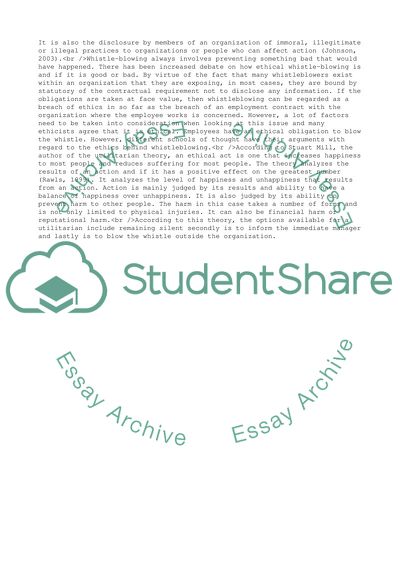Cite this document
(Whistle Blowing in Businesses Essay Example | Topics and Well Written Essays - 1750 words - 1, n.d.)
Whistle Blowing in Businesses Essay Example | Topics and Well Written Essays - 1750 words - 1. https://studentshare.org/business/1871142-final-project
Whistle Blowing in Businesses Essay Example | Topics and Well Written Essays - 1750 words - 1. https://studentshare.org/business/1871142-final-project
(Whistle Blowing in Businesses Essay Example | Topics and Well Written Essays - 1750 Words - 1)
Whistle Blowing in Businesses Essay Example | Topics and Well Written Essays - 1750 Words - 1. https://studentshare.org/business/1871142-final-project.
Whistle Blowing in Businesses Essay Example | Topics and Well Written Essays - 1750 Words - 1. https://studentshare.org/business/1871142-final-project.
“Whistle Blowing in Businesses Essay Example | Topics and Well Written Essays - 1750 Words - 1”. https://studentshare.org/business/1871142-final-project.


